- Home
- Linda Byler
The Homestead
The Homestead Read online
The characters and events in this book are the creation of the author, and any resemblance to actual persons or events is coincidental.
THE HOMESTEAD
Copyright © 2017 by Linda Byler
All rights reserved. No part of this book may be reproduced in any manner without the express written consent of the publisher, except in the case of brief excerpts in critical reviews or articles. All inquiries should be addressed to Good Books, 307 West 36th Street, 11th Floor, New York, NY 10018.
Good Books books may be purchased in bulk at special discounts for sales promotion, corporate gifts, fund-raising, or educational purposes. Special editions can also be created to specifications. For details, contact the Special Sales Department, Good Books, 307 West 36th Street, 11th Floor, New York, NY 10018 or [email protected].
Good Books is an imprint of Skyhorse Publishing, Inc.®, a Delaware corporation.
Visit our website at www.goodbooks.com.
10 9 8 7 6 5 4 3 2 1
Library of Congress Cataloging-in-Publication Data is available on file.
ISBN: 978-1-68099-213-7
eBook ISBN: 978-1-68099-212-0
Cover design by Koechel Peterson & Associates, Inc., Minneapolis, Minnesota
Printed in the United States of America
TABLE OF CONTENTS
The Story
Glossary
Other Books by Linda Byler
About the Author
CHAPTER 1
As far as the eye could see, nothing but waving grass rustled in a wind that still carried a hint of winter. Brown and dry, it whispered the secrets that grew beneath its dying roots, as the sun coaxed tender green shoots of newborn grass from the snow-soaked earth.
If you looked closely, the beginning of a structure raised itself into the blue of the sky, thrust upward unfamiliarly, sharp and brown and out of place in the sea of grass, like the hull of a ship aground on the beach, the waves continuing their pounding as if the vessel had never been there.
Here, on the high prairie, the wind never ceased. Only before a storm did it become quiet, held back before it unleashed its power, multiplied by the calm, wreaking its havoc in the form of a deadly tornado or pelting hail driven by the storm’s fury.
If you looked closer still, to the left you see faint wagon tracks that had crippled the waving grasses, crushing the brittle ones with each turn of the steel band that encircled the heavy wooden wheel, the plodding horses’ hooves digging up the tender earth, erasing some of the weaker green shoots of grasses and delaying the stronger ones.
The trail curved away across the prairie until the distinct, sharp lines of the building jutted into your vision off to the right, marring the otherwise flat and serene landscape, the rough logs lashed and pegged firmly against the restless wind, and the steep pitch of a roof without lath or shingle.
The road turned down a small incline, rose slightly upward, and came to the mess of uprooted grasses, mud, and butchered logs dragged in from a place unseen. The whole scene was like a small wound on the immensity of the high prairie, smeared with wet salve. Off to the left stood a worn wagon, the dirty yellowed canvas straining against the ropes that lashed it to the bows bent into an upside-down U shape spanning one side of the wagon box to the other. It had once been a fine Conestoga wagon, but months on the road had aged it considerably.
It was the house that disturbed the blue of the sky and the waving grasses. Substantial in size, made of logs entirely, without a roof, windows, or doors, it was a structure being born nevertheless.
Two horses were tethered a distance from the wagon, the dusty harnesses slung across a steel-rimmed wheel. Granite buckets, the remains of a fire, an agate washtub and coffee pot, wooden troughs and crates, an assortment of stumps set around the campfire—all told of the human beings who traveled here to make a home in the vast and magnificent land, away from the East, from the congestion of religions and doctrines, and from brethren who bickered and fought among themselves like European starlings wearing their wide-brimmed black hats and broadfall trousers like an armor against evil worldly practices.
Mose Detweiler did not always know who was right and who was wrong. A simple, stalwart, dark-haired, sturdy man, he adhered to the doctrines of the Old Order Amish, the Christian sect founded in Switzerland by Jacob Ammann, who, in 1693, broke from the Mennonites over issues concerning excommunication and the practice of shunning.
By the twentieth century, most of the world’s Amish lived in North America, their faith growing as they raised families according to their interpretation of scripture, and the rules and regulations written in the “Mutterschprache,”—the mother tongue of the Swiss and German lands from where many Amish trace their ancestry.
The Great Depression of 1929 had hit Mose like a ton of bricks; it flattened him and took away his farm with its wonderful black loam soil of Lancaster County, Pennsylvania. Unable to make the mortgage, steep by all accounts (his father and older brother had warned), the bank that held it crumbled under the weight of a worthless dollar. Mose took to making moonshine illegally and selling it to bootleggers for a few dollars. After selling off most of the cattle and all of the sheep and pigs, what else could he do with the grain?
When the church discovered his secret, it excommunicated and shunned him. Shamed publicly, no longer able to hold up his head and look his brethren in the eye, he told his good wife, Sarah, that he was going West.
Her large brown eyes filled with the softness of tears, jewels of love and forgiveness. She said she would go, but not with ill feelings and certainly not with the curse of the ban. “You done wrong, Mose,” she said softly, placing a hand on his solid shoulder as she looked into his brown eyes, watching them soften and become liquid with love. “Now make it right.”
He hung his head, then, ashamed of his misdeed in the purity of her forgiveness. He went out, hitched up his horse and spoke to the bishop, repenting of his illegal work. He returned to the fold at peace.
So the family left, the shame of losing the farm riding with them on the high wooden seat. The many doctrines of the numerous Plain churches confused Mose, saddling him with a driving need to escape the noise and the cackling of a hen house with too many hens.
He wanted to continue in the doctrine his father had taught him, the simple belief that Jesus paid for his sins by His death on the cross. The Bible commanded a plain and peaceable way of life, and that was all. It seemed to Mose that everyone around him complicated matters, stirring controversy with the wooden paddle of heresy. He didn’t understand the endless prattle caused by dissecting Bible verses and examining them under a microscope of ill-feeling and tightfistedness. When he couldn’t breathe love among his brethren, choked on the fumes of a hundred different voices spouting as many different views, he drove away on his Conestoga wagon with the most blessed among women by his side. His Sarah. His jewel. His finest God-given possession. In the light of her love he became a better man, for he knew he was simple and didn’t comprehend many of life’s intricacies and the complexities of other men’s outspoken knowledge.
It had always been so, even in school. Quiet and subdued, he fell behind in class, suffering misery at the teacher’s rebuke and dissatisfaction with his many shortcomings. Somehow, though, he had won Sarah, a dark-haired, dark-eyed beauty from Honeybrook who placed her hand in his and never left him alone or insecure again. She was his rock, his helpmeet, and his best friend.
The journey was arduous, but they were a stoic family. Their oldest daughter, Hannah, was tall, thin, and had her mother’s brown eyes and creamy skin. But there the likeness ended. Easily riled, her full mouth frequently pouted contemptuously, a fire in her eyes like brown sparks, the least provocation setting off the shooting flames. Her
adolescence was fraught with prickly ill-humor and dissatisfaction with everything and everyone around her. At fourteen she was the bane of her patient mother’s existence, the thorn in her father’s side, but the delight of her brother Manasses, known as Manny or, in Hannah’s silly chatter, simply “Man.”
Manny was twelve, dark-haired, sturdy, tall, and winsome, with eyes that were completely without guile. He adored Hannah, loved his mother, and held his father in high esteem. He was content with whatever came his way, so when the children were told of the move west, he merely nodded his head and agreed. He didn’t know what the West was, but he figured it would be all right, as long as his father thought so.
Hannah threw a royal fit until Mose sent her firmly to her room with no supper. As she laid on her bed listening to her stomach growl, she vowed never to become a vanilla pudding like her mother—no backbone, no will, no nothing. She did not want to leave Lancaster County no matter how poor they were. Her father could get a job at the harness shop or the butcher shop or any place. She wanted to stay here with her friends Rebecca, Annie, and Katie. What was out West besides nothing? She guessed they’d all be dead by the time they got to the Mississippi River, and if they weren’t, they’d all be drowned shortly thereafter.
Eight-year-old Mary was dark-haired as well, but her wavy tresses were shot through with golden strands. Her eyes were light hazel, her skin pale with a dusting of earth-colored freckles as delicate as stardust. Mary was an astounding-looking child who skipped blithely through life, turning heads with her adorable smile. She carried her sheer unspoiled air of goodwill like an essence. At her young age, the West was a good place filled with bluebirds and colorful butterflies, fascinating bugs, and warm bunnies.
Mary persuaded six-year-old Eli, short, stocky, and dark-eyed with a thatch of thick black hair that always stood away from his cowlick like a mild explosion. He had inherited the same wild gene as his sister Hannah, so he was given to bursts of anger over slight irritations. Talkative, he voiced his childish opinions forcefully. As an infant he had yelled with colic day and night, aging his parents with relentless crying as his stomach churned with gas and indigestion, his feedings coming back up with the force of a water spigot. He fell down an entire flight of stairs at eight months, bumping his forehead until a blue-black egg formed like a frightening growth. His cowlick stood straight up and never laid back down.
Relatives cried, hugged, sized up the wagon, and shook their heads. “Why don’t you take the train?” one of them asked. But Mose was determined and Sarah was submissive. Eager to see the world, they trusted that the money would last and the Mississippi would be crossable. God would provide, and they’d be on their way with His blessing.
And they were blessed.
They made good time with the heavy horses suited for travel, the endurance bred into them. The hardest part was the cold weather, when the snows blasted them with tiresome fury. When a roaring campfire was not enough, they settled into a small clapboard house for a few months before moving on.
Sarah’s lovely face had become gaunt and pale. She was short with the children, her hands riddled and crosshatched with chilblains. It was when she hid her eyes from her husband’s searching gaze that he decided the cold and the monotony of days on the wagon seat were too much. So they stopped in western Indiana, in the forsaken little town of Salem, and took up residence in the other half of Mrs. Ida Ferguson’s town house, built in 1848 by her husband’s own hands, may he rest in peace. Hannah told Manny that Mr. Ferguson couldn’t be resting too peacefully the way he slapped this cheap house together, then went and died and left his widow to stuff things like sheep’s wool in the cracks.
Ida was short and buxom, a white apron encircling the vast circumference of her stomach. She wore it low and snug, leaving her hips to sprout like two appendages on either side, a resting place for her balled up fists, shoved snug by the weight of her lumpy elbows, scattered with blue veins and purple moles. Her nose was round and loose like a manatee, her mouth wobbly with relaxed skin, her eyes pinpricks of brilliant blue that fired good humor.
She put them up in the “harvesters’ quarters,” as she called the two rooms downstairs and two upstairs. It was drafty, the nails studded with frost like pristine mold, the rooms bare except for the minimum of necessities, the rough board floors scattered with bits and pieces of linoleum, frayed and cracked around the edges like a flapping, hazardous doily.
But there was a roof over their heads, and a rusty dysfunctional coal stove that was either red hot or barely producing heat, nothing in between. Their humble home was a source of comfort, a spot of warmth out of the wind and the constant smell of dirty wool, limp flannels, and unwashed bodies.
The first week in Salem, Sarah washed clothes in Ida’s wringer washer and hung them on racks around the stove where they steamed with the good smell of lye soap and powdered detergent. She swept and scrubbed, lifted the derelict linoleum and swept underneath. She washed windows with vinegar water, ironed clothes, and soaked their white head coverings, which were now yellow and flattened from being stored in trunks and leather satchels.
They ate soup and fried meat, pots of oatmeal, and cornmeal pudding called corn pone. Sarah’s cheeks were again pink, and her eyes soft and dark. She cleaned and cooked and slept in a bed with Mose by her side, like civilized folks, she said, not unkindly.
Ida visited every day, eyed Sarah’s burgeoning figure, and asked how soon. Sarah’s face flamed, and she kept her eyes downcast. “Not yet,” she mumbled in a reply that barely made it past her lips. Ida watched her face, the spreading suffusion of color, patted her cheek, and said she hadn’t meant to be nosy.
Hannah drew her eyebrows down and opened her mouth, but that was as far as it went. Her father kicked her beneath the table, his eyes sizzling with rebuke. These things were not spoken of, certainly not by a brash fourteen-year-old.
Ida missed all of this; her good humor rode on the wings of the blushing Sarah, so sweet, so grateful to have this house. Poor dear. What a journey! Why they had not taken the train was beyond her; but then, it was none of her business. She went home and baked them a molasses cake with crumb topping, opened a jar of preserved peaches, and took it over for their dessert. She sat on a chair by the stove and ate a large portion herself.
She cried when they left too soon, mopping her streaming eyes as she wished them Godspeed. She prayed fervently for Sarah every night before she went to bed.
The return of the cold, the flat monotony of the land, snatched the color from Sarah’s face, turning her eyes dull and tired, like an unpolished rock. Her mouth was set in a straight line, her nose white and pinched, her eyes never leaving the brown, flapping haunches of the horses. It was only when spring arrived that she came back to life, the scent of new grass and south breezes filling her with hope.
Mose marveled at the land, the sheer, unbelievable magic of the empty space, immeasurable sky, and the distance from one line of cottonwoods to another. There was an occasional ranch, a cluster of houses, sometimes a small town, but mostly there was the endless sea of grass, the road before them, and the flat sky that turned from gray to blue and back to gray again.
Cold rains were the worst, draining their spirits, and sapping goodwill and energy. Roaring campfires dried out the worst of the discomfort, but dampness remained for days, leaving the children sneezing and coughing fitfully during the night.
Sarah wondered vaguely what would become of them out here in this wild, treeless land. Not one other Amish person to be with, to attend church with, to hold quiltings and hymn sings with, and no visitors to invite to your table. Would they all drift away, like miniscule seeds from a dandelion head, blown about by the winds of the world?
She watched her husband’s smooth, untroubled face, thought of the small amount of dollars left in her cache, and wondered how they would survive. Must she go willingly, without question, hiding all her fears of the future? To second guess their decision now would serve no other
purpose but to bring him down to the level of her pessimism.
Who would help her birth the baby? Who would know they had even arrived, let alone existed, needing help? Was there no kindly soul anywhere close? She felt her heart tightening, her stomach contracting, her pulse gaining speed. Her breathing became light and quick, and nausea rose in her throat.
“Mose.” Her voice was quick and breathy.
He looked at her, shocked, his eyes widening. “Not already?”
“Oh, no. No. But, who will help when my time comes?”
Relieved, Mose laughed a genuine laugh filled with good spirits and calm. He put his arm around her shoulders and drew her against him, rubbing the palm of his hand up and down the sleeve of her coat. “Ach, my darling Sarah, don’t worry. I’ll find someone.”
When they finally rolled to a stop one day in April on the small rise close to the line of cottonwoods and box elders, with a creek winding among them, full and wide, overflowing its banks in the wet springtime, it was like a miracle, a mirage, something you believed you saw but that would disappear before you had a chance to touch the bark of those trees or the rippling water.
They set up camp and walked the property lines. Mose got out the documents as if they were sacred, read them aloud slowly, mispronouncing the words, but Sarah knew what it meant. They would homestead these one hundred acres. At the end of five years, they would be the owners of this wild and foreign land. Sarah scratched the red rash on her forearm, squinted into the late afternoon, and stopped her rising panic as she turned her body from east to west, then north to south. A trail, a roof, a rider, please God.
Her face calm, unruffled, she walked to the wooden stake that sectioned off their acres and began to shake uncontrollably. Grateful for her long skirt and the fullness of the gathered fabric, she gripped each elbow in the palms of her hands and held them, crushing her arms against her stomach as tremors of the unknown shook her.
All around was only the untamed land and the enormous sky with a white cold sun lending its half light. The wind moaned and blew ceaselessly, ruffling the ends of the brown, dead grass, pushing the faraway trees into a crooked, swaying dance. Brown birds, the color of the grass, wheeled across the sky at breakneck speed, squawking a shrill, short note before disappearing into the restless grass. There were no crows or vultures, no deer, only the incessant calling of the numerous prairie hens. A gopher stood on its hind legs and gripped its front legs in front of itself like a reverent little minister beginning a soul-searching sermon.

 A Second Chance
A Second Chance Lizzie's Carefree Years
Lizzie's Carefree Years The More the Merrier
The More the Merrier Love in Unlikely Places
Love in Unlikely Places Running Around (and Such)
Running Around (and Such) Wild Horses
Wild Horses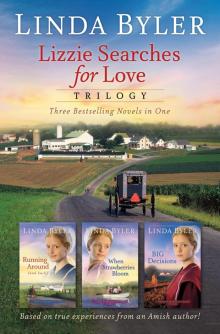 Lizzie Searches for Love Trilogy
Lizzie Searches for Love Trilogy Lizzie and Emma
Lizzie and Emma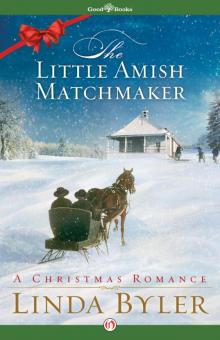 Little Amish Matchmaker
Little Amish Matchmaker The Witnesses
The Witnesses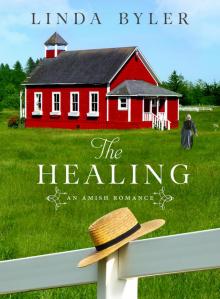 The Healing
The Healing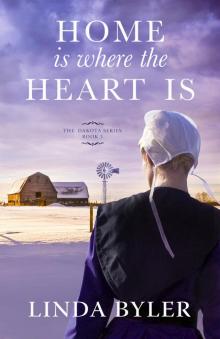 Home Is Where the Heart Is
Home Is Where the Heart Is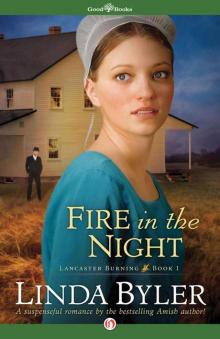 Fire in the Night
Fire in the Night When Strawberries Bloom
When Strawberries Bloom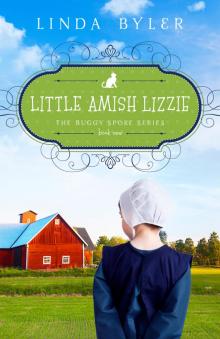 Little Amish Lizzie
Little Amish Lizzie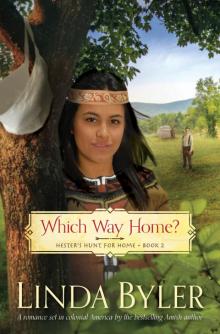 Which Way Home?
Which Way Home? The Homestead
The Homestead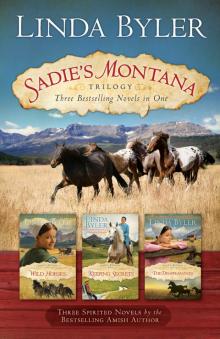 Sadie’s Montana Trilogy
Sadie’s Montana Trilogy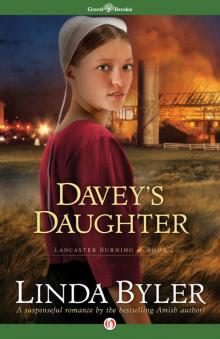 Davey's Daughter
Davey's Daughter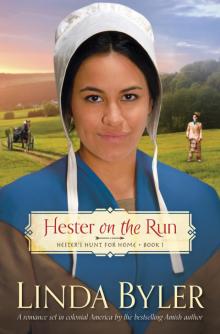 Hester on the Run
Hester on the Run Disappearances
Disappearances Big Decisions
Big Decisions Becky Meets Her Match
Becky Meets Her Match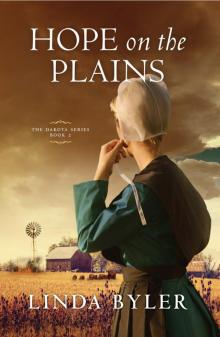 Hope on the Plains
Hope on the Plains Christmas Visitor
Christmas Visitor